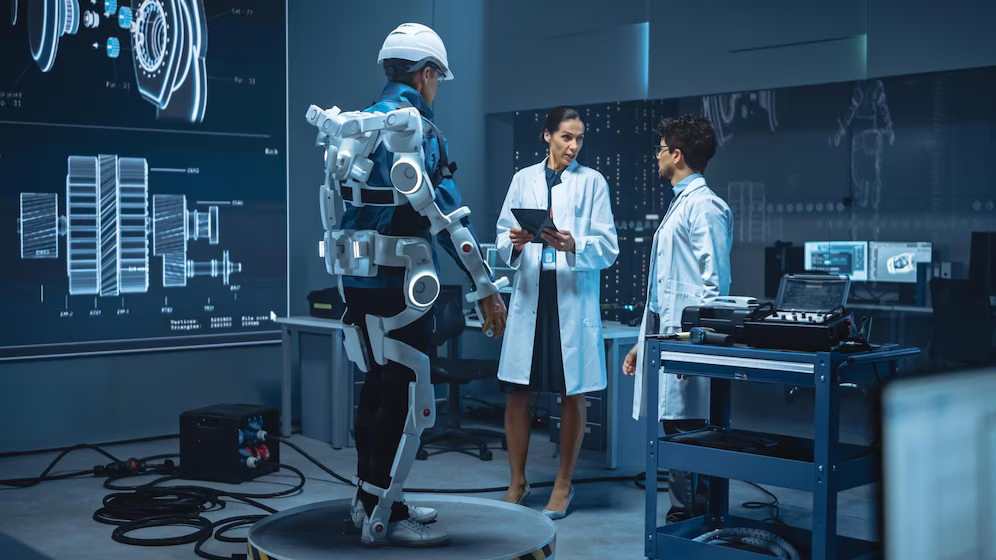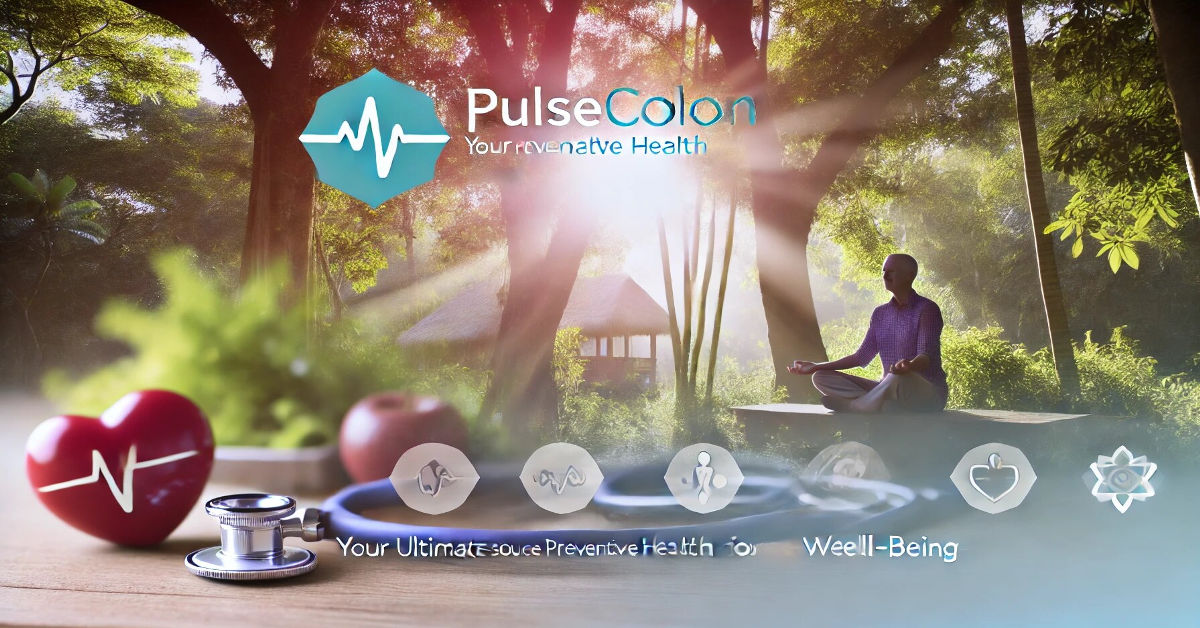Welcome to the exciting world where cutting-edge technology meets the healing touch of healthcare! In recent years, there has been a remarkable shift in the way we approach medicine and patient care. Thanks to advancements in Artificial Intelligence (AI) and robots, our healthcare landscape is rapidly evolving, opening up new possibilities that were once only imaginable in science fiction.
From robots performing surgeries with incredible precision to AI-powered systems diagnosing diseases at lightning speed, these technologies are reshaping the horizon of healthcare as we know it. In this blog post, we will delve into the fascinating realm of AI and robots in healthcare, exploring their advancements, benefits, applications, challenges, ethical considerations – and dare we say it – even glimpse into what lies ahead for this thrilling field. So fasten your seatbelts as we embark on this journey where innovation meets compassion!
Advancements in AI and robotics technology
Advancements in AI and robotics technology have revolutionized the healthcare industry, paving the way for innovative solutions to complex medical challenges. With each passing day, we witness remarkable progress in these fields, propelling us towards a future where AI-powered machines work alongside human healthcare professionals.
In the realm of artificial intelligence, machine learning algorithms are being developed to analyze vast amounts of patient data and provide accurate diagnoses. These algorithms can quickly sift through millions of medical records, identifying patterns that may go unnoticed by humans. This not only saves valuable time but also increases the accuracy and efficiency of diagnosis.
Robotic technologies have also made significant strides in healthcare. From surgical robots performing intricate procedures with precision to robotic exoskeletons aiding rehabilitation efforts, these machines are transforming how surgeries are conducted and how patients recover.
Moreover, advancements in natural language processing allow AI systems to understand and interpret human speech, enabling better communication between patients and virtual assistants or chatbots. Patients can now receive personalized care recommendations or ask questions about their health anytime from anywhere.
Additionally, remote monitoring devices equipped with AI capabilities enable real-time tracking of vital signs such as heart rate or blood pressure. This allows physicians to monitor patients remotely while ensuring prompt intervention if any abnormalities are detected.
The integration of AI into radiology has brought about significant improvements as well. Machine learning algorithms can analyze medical images like X-rays or MRIs more accurately than ever before, assisting radiologists in detecting early signs of diseases such as cancer or identifying anomalies that might be missed by the human eye alone.
As technology continues to advance at an unprecedented pace, it opens up new possibilities for improving patient outcomes and enhancing overall healthcare delivery. The potential for collaboration between humans and intelligent machines is immense – together they can tackle complex medical problems with greater precision while reducing errors associated with human factors.
However, it’s important not to overlook the challenges that come hand-in-hand with adopting AI and robotics in healthcare settings. Concerns such as data privacy and security, ethical considerations, and the need for proper training
Benefits of using AI and robots in healthcare
The integration of AI and robotics technology in healthcare has brought about numerous benefits, revolutionizing the way we approach patient care. One major advantage is the ability to improve accuracy and efficiency in diagnosing medical conditions. AI algorithms can analyze vast amounts of data from patient records, lab results, and medical literature to provide more precise diagnoses, reducing the margin for error.
Furthermore, AI-powered robots have proven valuable in assisting with surgical procedures. Surgeons can now rely on robotic arms that offer enhanced precision and stability during complex surgeries. This not only improves outcomes but also reduces recovery time for patients.
AI applications also play a crucial role in personalized medicine by tailoring treatment plans based on individual characteristics such as genetics or past medical history. By leveraging machine learning algorithms, doctors can make better-informed decisions regarding medication dosage or therapeutic interventions.
Another benefit lies in remote monitoring capabilities provided by wearable devices integrated with AI technology. Patients with chronic conditions can be monitored continuously from home, enabling early detection of any potential health issues and timely intervention.
Moreover, the implementation of chatbots equipped with natural language processing allows patients to access medical advice instantly without having to wait for an appointment. This provides convenience while ensuring continuous support for individuals seeking healthcare guidance.
In addition to these advantages, AI-driven systems enable healthcare providers to streamline administrative tasks such as scheduling appointments or managing electronic health records efficiently. This frees up valuable time for clinicians to focus on direct patient care rather than paperwork.
Embracing the power of AI and robotics in healthcare brings forth a multitude of benefits ranging from improved diagnosis accuracy to enhanced patient experiences through personalized care plans and streamlined administrative processes.
Examples of AI and robotic applications in healthcare
Examples of AI and robotic applications in healthcare are becoming increasingly prevalent, revolutionizing the way medical professionals diagnose and treat patients. One such example is the use of AI algorithms to analyze medical images, allowing for more accurate and efficient diagnoses. By rapidly scanning thousands of images, AI can detect patterns or anomalies that may be missed by human eyes alone.
Robots are also being utilized in surgical procedures, providing surgeons with enhanced precision and control. With the assistance of robotic arms, surgeons can perform complex surgeries with minimal invasiveness, resulting in reduced pain and faster recovery times for patients.
AI-powered chatbots are another application making waves in healthcare. These virtual assistants can provide personalized medical advice based on a patient’s symptoms or medical history. They have the potential to reduce wait times at clinics and hospitals while ensuring patients receive timely guidance.
In addition to diagnosis and treatment, AI is also transforming healthcare research. Machine learning algorithms can sift through vast amounts of data to identify trends or potential treatments for various diseases. This accelerates drug discovery processes and enables researchers to make informed decisions based on comprehensive analysis.
Potential Challenges and Limitations
While the use of AI and robots in healthcare holds immense promise, there are also several potential challenges and limitations that need to be considered. One of the primary concerns is privacy and security. With the vast amount of data being collected and processed by AI systems, there is an increased risk of breaches or misuse of sensitive information.
Another challenge is the ethical implications associated with using AI in decision-making processes. As these technologies become more sophisticated, questions arise about their ability to make unbiased decisions without human intervention or oversight. Additionally, there may be legal complexities related to liability if a robot malfunctions or makes an error that results in harm to a patient.
Another limitation is the cost associated with implementing AI and robotic systems in healthcare settings. While these technologies have the potential to improve efficiency and reduce costs in the long run, initial investments can be significant for hospitals and other healthcare providers.
Furthermore, there may be resistance from both patients and healthcare professionals towards embracing AI-driven solutions. Some individuals may feel uncomfortable relying on machines for critical tasks traditionally performed by humans, while others may fear job displacement as automation becomes more prevalent.
Interoperability issues between different systems can hinder the seamless integration of AI into existing healthcare infrastructure. Ensuring compatibility across various platforms and devices will require collaboration among technology developers, regulatory bodies, and healthcare organizations.
Ethical Considerations in Healthcare Robotics and AI
As the field of healthcare continues to embrace advancements in robotics and AI technology, it is crucial to consider the ethical implications that arise from their integration. These considerations are important for ensuring that these technologies are used responsibly and with utmost respect for patient rights and well-being.
One key ethical concern is privacy and data security. With the vast amount of personal health information being collected by AI systems, there is a need to implement robust measures to protect this data from unauthorized access or misuse. This includes implementing encryption protocols, strict access controls, and regularly updating security measures to stay ahead of potential threats.
Another area of concern is the potential impact on healthcare professionals. While robots can automate certain tasks, such as repetitive surgeries or medication dispensing, it raises questions about job displacement for human workers. It is essential to develop strategies that ensure a balance between utilizing automation for efficiency while also providing opportunities for upskilling and retraining healthcare professionals in new roles.
Additionally, there is a moral obligation to ensure equitable access to AI-driven healthcare services. As these technologies become more prevalent, it’s important not to create a digital divide where only those who can afford them have access to enhanced medical care. Efforts should be made towards making these innovations accessible across all socioeconomic strata.
The use of AI algorithms also brings up concerns regarding bias and fairness. If not carefully designed and tested, algorithms could inadvertently discriminate against certain populations based on race or gender biases present in training data sets. Attention must be given during algorithm development stages by incorporating diverse datasets that accurately represent different demographics.
Transparency in decision-making processes becomes vital when using autonomous systems like robotic surgeons or diagnosis tools powered by AI algorithms. Patients have the right to understand how decisions affecting their health are being made so they can make informed choices about their treatment options.
The Future of AI and Robots in Healthcare
As we look ahead, it is clear that the future of healthcare will be greatly influenced by artificial intelligence (AI) and robotics. The possibilities are vast, with these technologies poised to revolutionize patient care and medical practices.
One area where AI and robots hold great promise is in diagnostic capabilities. With their ability to process large amounts of data quickly and accurately, they can assist healthcare professionals in making more accurate diagnoses. This could lead to earlier detection of diseases, improved treatment outcomes, and ultimately save lives.
In addition to diagnosis, AI-powered robots have the potential to enhance surgical procedures. Robotic-assisted surgeries are already being performed with great success, allowing for greater precision and minimally invasive techniques. As technology continues to advance, we can expect even more sophisticated robotic systems that can perform complex surgeries autonomously or under remote supervision.
Another exciting prospect for the future is the use of AI chatbots as virtual healthcare assistants. These intelligent bots can provide personalized health advice based on individual medical histories and symptoms. They could also improve accessibility by providing round-the-clock support for patients seeking information or assistance.
Furthermore, AI algorithms can be used to analyze electronic health records (EHRs) on a large scale. By identifying patterns within this vast amount of data, researchers can gain valuable insights into disease trends, treatment effectiveness, and population health management.
However promising these advancements may seem, there are challenges that need addressing before widespread adoption becomes a reality. Privacy concerns surrounding patient data security must be carefully managed so that individuals’ personal information remains protected at all times.
Additionally, there will always be ethical considerations when integrating AI into healthcare decision-making processes. While machines may offer efficiency gains through automation and reduction in human error rates; human oversight should remain an essential component ensuring accountability throughout the entire system.
Conclusion
AI and robots are rapidly reshaping the healthcare horizon, revolutionizing the way we diagnose, treat, and care for patients. The advancements in AI and robotics technology have brought numerous benefits to the healthcare industry, improving efficiency, accuracy, and patient outcomes.
The integration of AI algorithms has enabled healthcare professionals to analyze vast amounts of medical data quickly and accurately. This has resulted in more precise diagnoses, personalized treatment plans, and improved patient monitoring. Additionally, robots equipped with advanced sensors and machine learning capabilities can assist in surgeries, drug administration, rehabilitation therapies, and elderly care.





